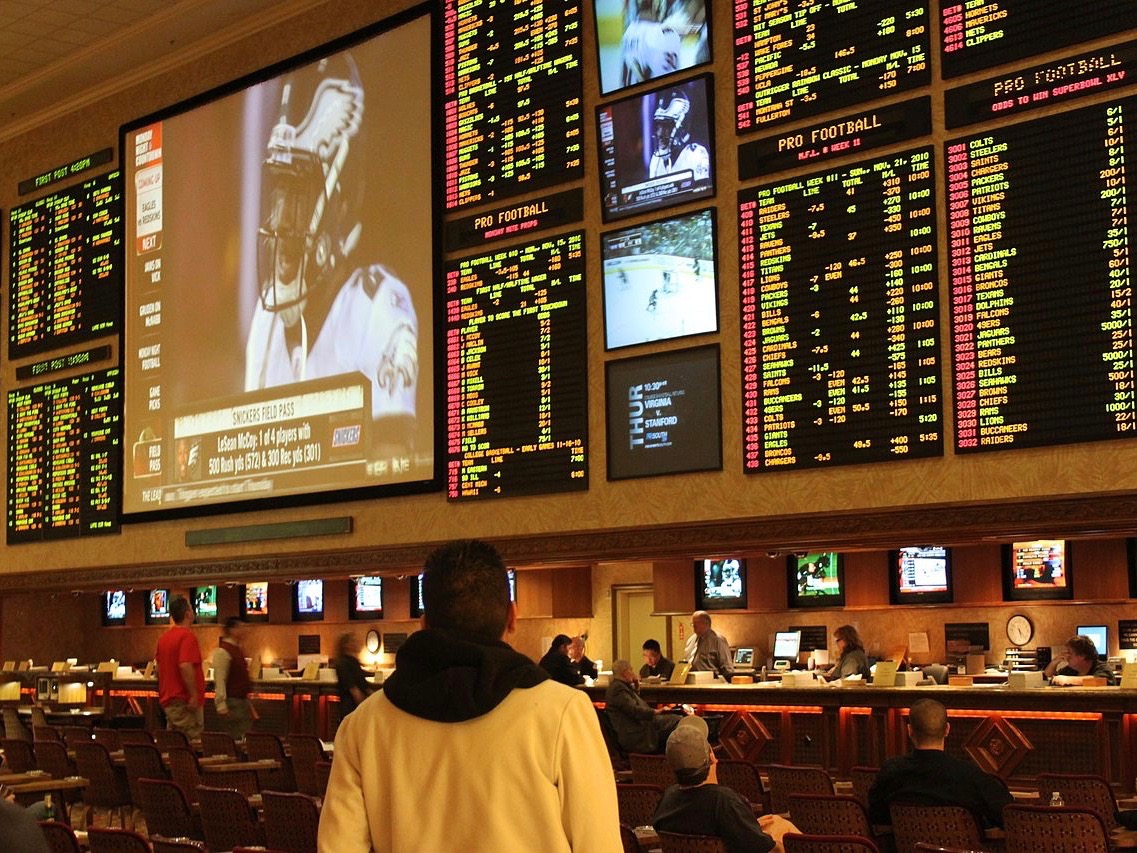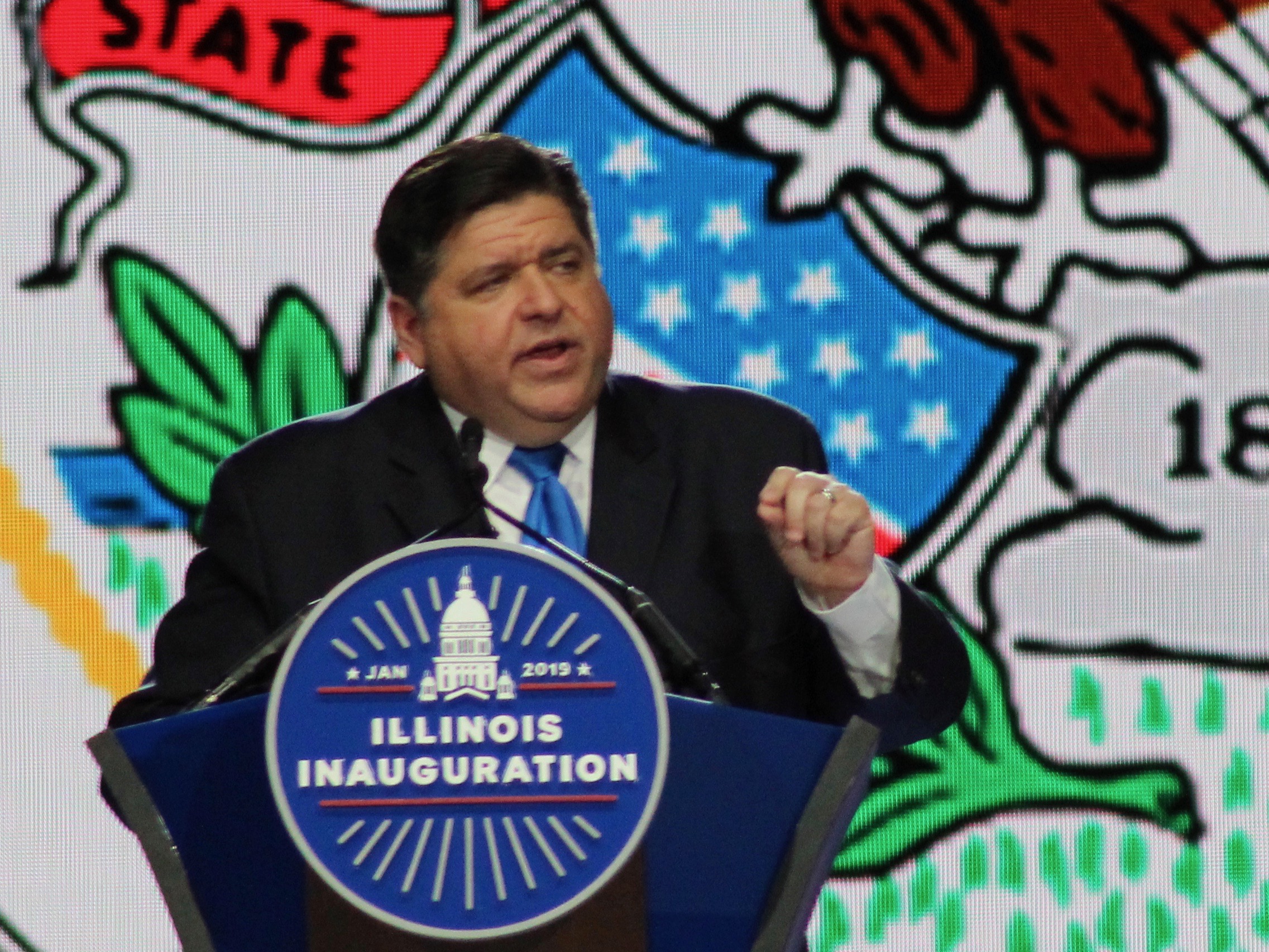Sports gambling could raise $100M in state revenue
But Illinois Economic Policy Institute warns it must first undercut betting on the black market
A customer sizes up a Las Vegas sports book in 2010. (Wikimedia Commons/Baishampayan Ghose)
By Ted Cox
Sports gambling could raise $100 million in tax revenue, create 2,500 jobs, and add a half-billion dollars to the Illinois economy, according to a new study released Tuesday.
But the Illinois Economic Policy Institute report “Legalizing Sports Betting in Illinois” also cautions that it must first set a tax rate competitive with bets placed on the black market in order to survive and thrive.
“In evaluating the legal sports betting systems currently proposed or in practice, it is clear that each have strengths as well as flaws,” said Frank Manzo IV, ILEPI policy director and co-author of the report. “This study demonstrates that any legislative proposals related to sports betting must strike a balance that minimizes black-market activity, while maximizing economic benefits and tax revenues to fund public services.”
But the potential gains in state revenue are considerable. The paper projects the total Illinois market for sports gambling at $12 billion. Even allowing illegal gambling to preserve just over a fifth of that market, that would still mean $9.4 billion a year in wagers, with $565 million in taxable gambling revenue. Taxed at 15 percent, that would create an estimated $85 million in revenue, with another $24 million in what’s called a federal handle tax, on handling the wager, and $5 million in so-called integrity fees, for compliance and state regulation.
Noting that the average legal Las Vegas sports book typically employs more than 26 people, the study projects that 88 licensed outlets — almost one a county — would create $8.8 million from an annual $100,000 licensing fee, while creating 2,570 jobs. Overall, it’s projected to have a $500 million effect on the state economy.
The report examines legal systems for sports gambling in Nevada, New Jersey, and also the United Kingdom, finding much to like in the way sports betting is administered in Great Britain. It casts doubt on a couple of bipartisan proposals submitted a year ago in Illinois, by Democratic state Sen. Napoleon Harris III of Chicago and Republican state Rep. Tim Butler of Springfield. According to ILEPI, the report finds “that both of last year’s Illinois legislative proposals would not effectively curtail black-market sports gaming activity due to relatively high tax rates. Other sports betting frameworks from states like New Jersey and Nevada, if adopted in Illinois, would shrink the black market more and create more jobs — but produce less state tax revenue.”
The study projects that, under those proposals submitted a year ago, about half of sports gambling would remain in the black market. An illegal sports gambler typically risks an extra 10 percent on the bet, known as the “vigorish,” but if winning the bet gets back the initial layout plus the wager, while a loser is out both the wager and the vig, which goes to the book as profit. Illegal gamblers, of course, are also much less likely to report their winnings when filing state or federal taxes.
“We also should look at sports betting in this state.”
Gov. J.B. Pritzker (One Illinois/Ted Cox
A news release on the report states: “Under realistic assumptions, the authors find that legalizing sports betting would greatly reduce illicit black-market activity in Illinois while generating significantly more revenue for the state than similar types of gambling, such as horse racing.”
ILEPI suggests that revenues could go “to fund treatment programs for gambling addiction, as well as additional investments in public education and public infrastructure.”
Co-author Robert Bruno, director of the Project for Middle Class Renewal at the University of Illinois at Urbana-Champaign, posited that if half of all tax revenues were devoted to tuition assistance for higher education, the state could increase Monetary Award Program grants by 10 percent, making college affordable to a wider ranger of students.
“With billions of dollars already being wagered on sports illegally in Illinois,” Bruno added, “a well-designed sports betting law could provide additional resources to address a wide range of public needs — such as expanding educational opportunities, rebuilding our state’s capital infrastructure, and combating the social costs of gambling addiction through proper treatment.”
Gov. J.B. Pritzker has said he’d look at legal sports gambling as a way to pad state revenues.
The U.S. Supreme Court cleared the way for legal sports gambling with a ruling last year, and 10 states have already adopted it.


